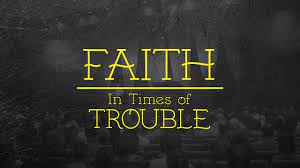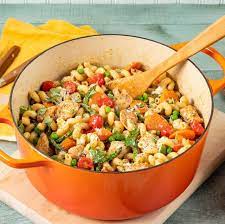Nutrition Tips for Older Adults to Stay Healthy
Eating right can be difficult if you’re not sure what to eat, how much to eat, or when to eat. As an adult, your choice of food must tally with that of your nutrition needs. It is very important that you watch what you eat as you age to stay healthy and to help prevent old age-related illnesses. Nutrition tips for older adults to stay healthy.
These nutrition and healthy eating tips will help older adults to make better choices when it comes to nutrition that will help them stay fit and fight age-related ailments.
Before we proceed to the nutrition tips for older adults, let's talk about the reasons why older adults need special Nutrition.
Reasons why older adults need special Nutrition
As we age, our body system changes. As an adult, you might not be able to eat as much sugar as you do in your youthful age.
Below are a few reasons why an older adult needs special nutrition;
1. To stay healthy.
2. To prevent age-old-related ailments.
3. To live long.
4. To have enough energy.
5. To avoid obesity.
6. To boost the immune
7. To support muscle.
Read Also: Okazi Soup – How to make Ofe Okazi
The 10 Nutrition Tips for Older Adults to Stay Healthy at Old Age
The following Nutrition tips will help older adults to stay fit and healthy in their old age.
1. Include Diary In Your Diet:
For older adults, it’s especially important to make sure your diet is balanced and nutrient-rich. Dairy products can be a great source of calcium, vitamin D, and protein, all of which are essential for healthy bones, muscles, and brain function.
Adding dairy into your diet can also help you get the recommended amount of calories and nutrients each day.
To get the most out of dairy, try to include a variety of dairy products in your meals. Low-fat yogurt is a great way to get some extra calcium and protein at breakfast.
2. Get Enough Protein:
Protein is an essential part of a healthy diet for all adults, but it's especially important for older adults. Getting enough protein can help maintain muscle mass and strength as you age, keeping you strong and active.
Additionally, protein helps with wound healing, the immune system, and other important bodily functions.
To get enough protein, try to include some form of protein in each meal and snack throughout the day.
Good sources of protein include lean meats, fish, eggs, nuts and seeds, legumes, dairy products, and soy-based products.
3. Eat Fruits and Vegetables Always:
Fruits and vegetables are an important part of any diet, especially for older adults.
Eating a variety of fruits and vegetables can help ensure that you are getting the necessary vitamins and minerals your body needs. Fruits and vegetables also provide fiber, which is important for digestive health.
When shopping for produce, choose fresh fruits and vegetables whenever possible, but frozen or canned varieties can also be a healthy option.
4. Watch Your Salt Intake:
As you get older, it’s important to keep an eye on your diet and make sure you’re getting the right nutrients. One important component of good nutrition is watching your salt intake. Eating too much salt can increase your risk of high blood pressure, stroke, and other health problems.
5. Limit Processed Food:
One of the best ways to keep a healthy eating lifestyle in old age is to limit your consumption of processed foods. Processed foods are those that have been altered in some way, either chemically or mechanically.
They typically contain high levels of sodium, fat, and sugar, as well as preservatives and artificial ingredients. Eating too much-processed food can increase your risk of obesity, diabetes, and heart disease.
Here are a few tips for limiting your intake of processed foods:
• Look for natural ingredients on the food label: If the label contains a long list of unfamiliar words and chemicals, it’s best to avoid that item.
• Make meals from scratch instead of buying pre-made meals: This will ensure that you are using natural ingredients rather than unhealthy preservatives and additives.
• Get creative with your meal ideas: Incorporate different types of fruits and vegetables into your meals so you won’t be tempted to reach for processed alternatives.
• Be mindful when eating out: Ask the waiter about preparation methods, and try to stick to freshly made dishes rather than anything fried or pre-prepared.
By following these tips, you can enjoy healthy meals that are free of processed ingredients and packed with nutritious
6. Drink Plenty of Fluids:
Your body may not be able to absorb and process nutrients as efficiently as it once did as you grow old. Staying hydrated is essential for staying healthy and keeping your body functioning properly.
Drinking plenty of fluids can help with digestion and can prevent dehydration.
When choosing what to drink, try to stay away from sugary drinks like sodas, sports drinks, and fruit juices. Instead, opt for water or low-fat milk.
For those that find plain water too boring, try adding lemon, lime, or cucumber slices for a refreshing twist.
7. Take Supplement If Needed:
To ensure your body is getting all the nutrients it needs, older adults should take supplements as needed. Depending on your health status, this may include vitamins, minerals, and probiotics. Talk to your doctor or dietician about which supplements may be right for you.
When choosing supplements, look for those that are easy to digest, are gluten-free and non-GMO, and have no added sugar or artificial sweeteners.
8. Avoid Empty Calories:
Empty calories are foods that have low to no nutritional value. Examples include snacks such as chips, cookies, and other processed food items.
While empty calories may seem good, they do not provide your body with the essential nutrients it needs to stay healthy. Instead of reaching for unhealthy snacks, opt for healthier options such as fruits, vegetables, nuts, seeds, and whole grains. These foods are packed with essential vitamins and minerals that help to fuel your body and protect against illness.
9. Don't Skip Meals:
Breakfast, Lunch, and dinner are essential foods for older adults. As an adult, you shouldn't miss any meal of the day. Also, eating regularly helps keep your body functioning properly, and your brain sharp.
Make sure to plan healthy meals throughout the day and stick to them. Include whole grains, fresh fruits and vegetables, lean proteins, and low-fat dairy products. If you’re on the go, grab healthy snacks like nuts, seeds, low-fat yogurt, and fruit.
10. Eat a Variety of Food:
Eating a variety of foods is essential for optimal health and wellness, especially as we age.
Eating a wide variety of foods helps to ensure that we get all the essential nutrients our bodies need. It is also important to choose nutrient-dense foods that provide vitamins, minerals, antioxidants, and other important nutrients.
For older adults, it is especially important to get adequate amounts of proteins, healthy fats, carbohydrates, and dietary fiber. Lean proteins are especially important for muscle growth and maintenance.
10 Nutrition Tips for Older Adults to Stay Healthy
Summary:
Older adults have special nutrition needs because their bodies change as they age, making it more important to pay attention to what they eat and drink.
There are also health conditions that older adults are more likely to have, and these can cause them to have additional nutrition needs.
Healthy eating habits in old age can help to stay fit and healthy.












